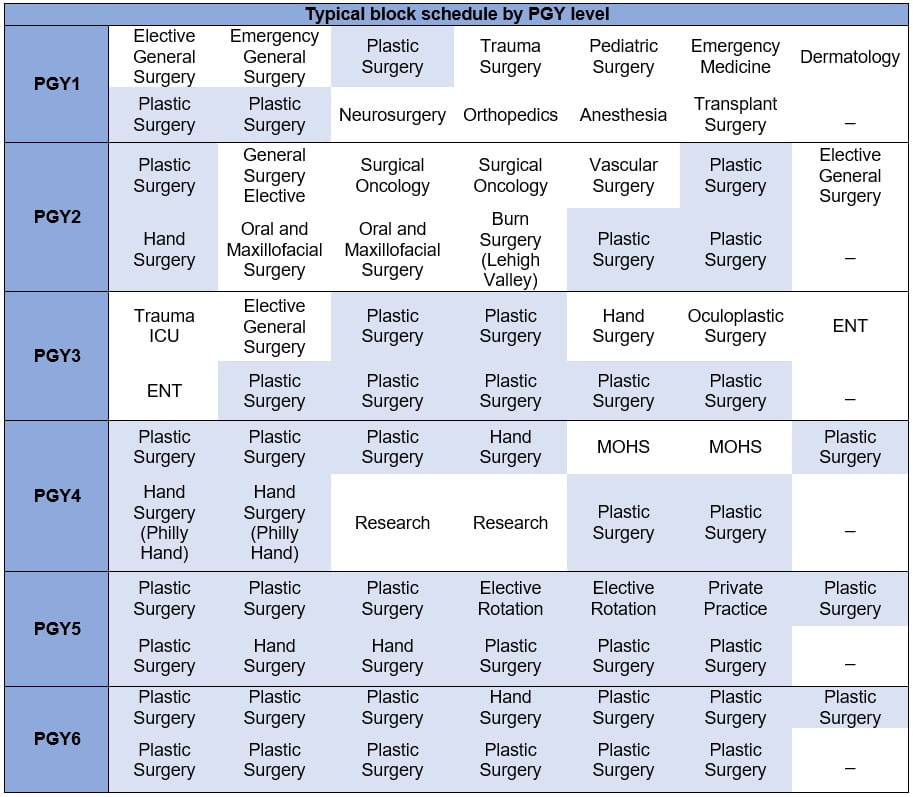Program overview
Our program mission
The Geisinger Plastic Surgery Residency aims to provide the highest quality of education and clinical experience to you, our residents. This will enable you to develop the skills, knowledge and attitudes to become independent practitioners of plastic surgery, in whatever field of plastic surgery that inspires you. We can accomplish this mission through your progressive responsibility and autonomy under the supervision and guidance of our faculty members. As a resident, you’ll train in plastic surgery in a variety of settings and locations. You’ll see patients in a hospital clinic, a freestanding office setting and a surgical outpatient center. Training will take place primarily in Danville at Geisinger Medical Center, but you’ll also spend time in Wilkes-Barre, Philadelphia, State College and Allentown.
An integrated health system features cooperation between disciplines to achieve optimal patient care. That multidisciplinary environment will give you experience in different settings including trauma, head and neck surgery, breast surgery and cleft/craniofacial care. You’ll benefit from rotation experiences on a variety of services related to plastic surgery, including oral surgery, oculoplastic surgery, otolaryngology, dermatology, Mohs surgery, orthopaedic hand surgery and trauma.
Another important aspect of the residency: service to the community. The Geisinger footprint encompasses a predominantly rural population. This means you’ll be exposed to patients who are farmers that live hours away from healthcare and lack basic resources, including Amish and Mennonite patients. Community service is a hallmark of the program. Our residents, in conjunction with the Plastic Surgery Department, are involved in a number of community service projects.
Curriculum
Rotations: The Geisinger Plastic Surgery Integrated Residency program provides a varied clinical experience, with early exposure to Plastic Surgery rotations. The block schedule below provides an outline of typical clinical rotations by year.
Structured education: You’ll spend three hours of protected time each week in education conference, which includes didactic lectures, workshops, research updates, morbidity and mortality and others. Each week one hour is dedicated to resident-driven education. Besides weekly conference, the educational curriculum includes experiences such as microsurgical lab, cadaver lab, weekly indications conference, journal club and resident injectables clinic. Those of you who are senior residents will also participate in mock oral boards and resident aesthetic clinic.
Scholarly activity: Resident research is supported and expected. Administrative support and funding for research projects and conference travel are provided. Department-wide research meetings are held every six to eight weeks. In addition, 20 days in PGY3 (biweekly while on Plastic Surgery rotation) and two months in PGY4 are set aside as dedicated research time.

